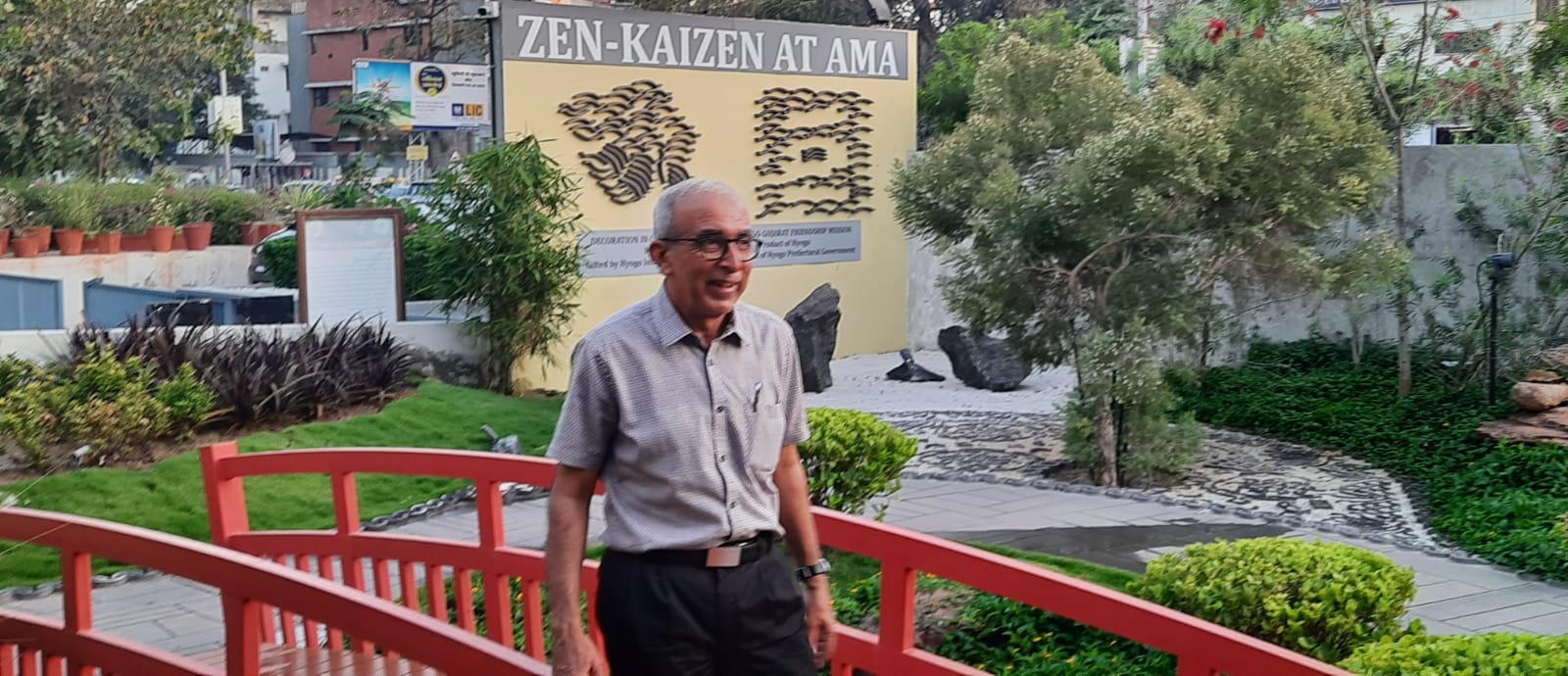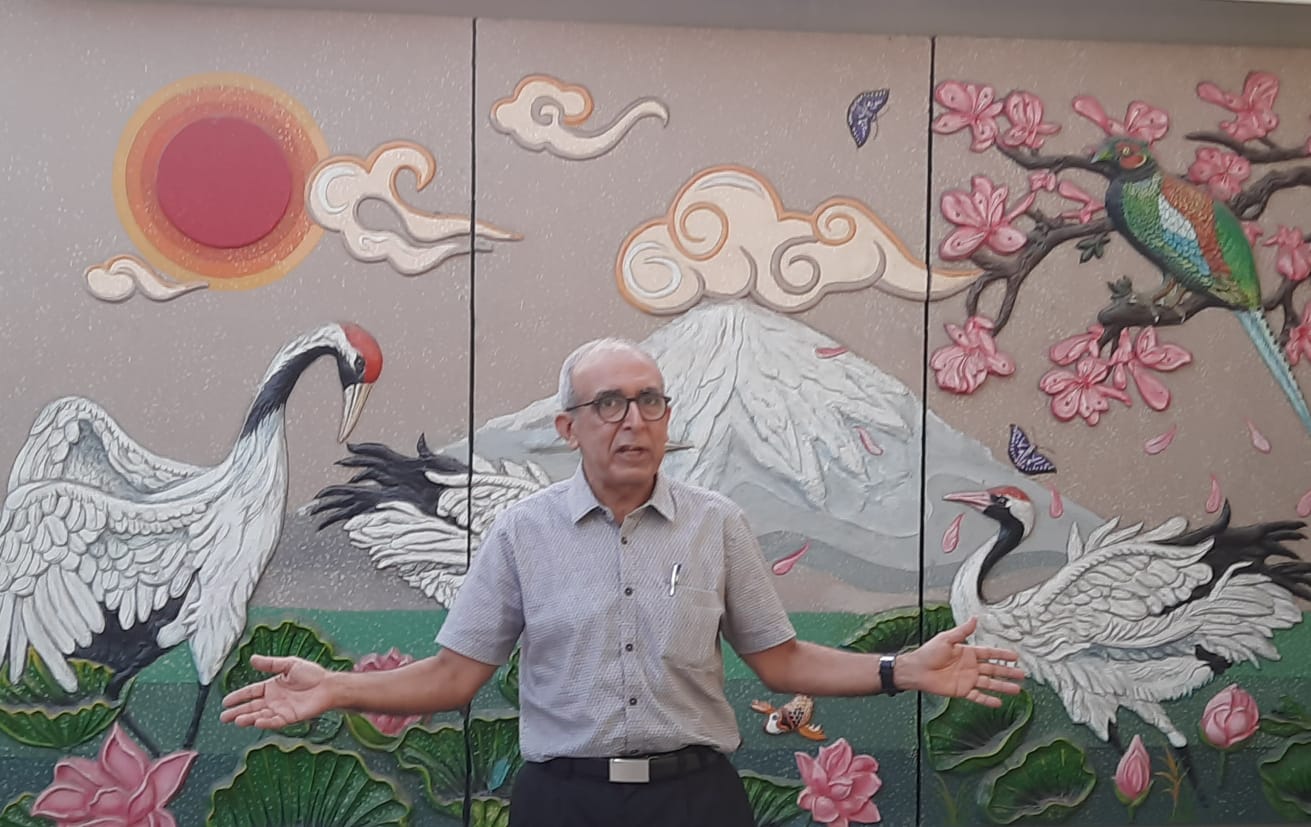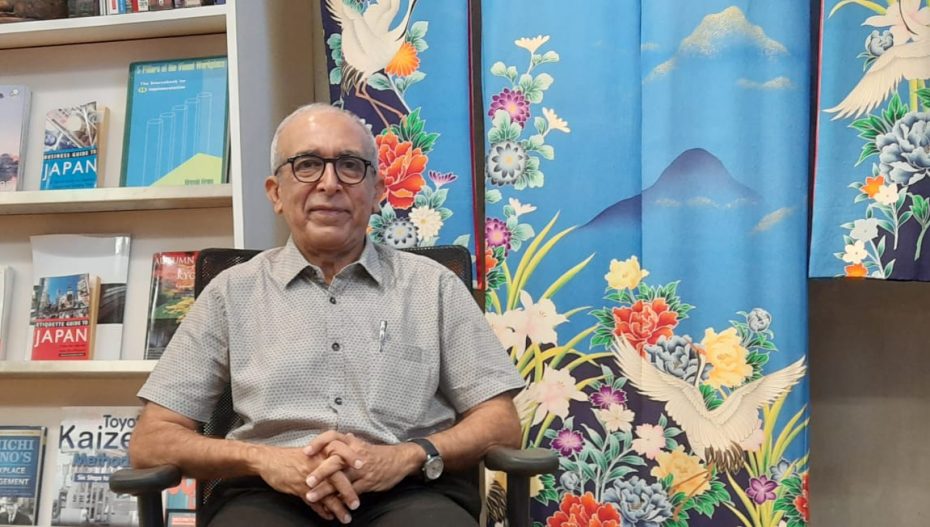When he was named President of Ahmedabad Management Association (AMA) five months ago, Deevyesh Radia joined a roster that includes illustrious personalities like Vikram Sarabhai, Prafull Anubhai and Indravadan Modi. But the 64-year-old alumnus of BK School of Business lays no claims to being a big-time businessman. As executive director of a small-scale enterprise named Orsett Hydraulics, he’s quite happy to be seen as a professional manager, an ordinary Joe, much like those AMA is meant to serve. Radia’s association with the AMA has been a long one, and his pride in the institution is obvious as he shows us around the campus, starting with the library and ending with the new Zen Garden. In an exclusive interview with VO!, Radia talks about the magic of continuous education, Ahmedabad’s millowning aristocracy and Idi Amin:

VO!: What are your plans for AMA in the coming year?
Radia: August 31 will mark 25 years of the AMA campus and we want to commemorate the event with a special programme. The building was designed by architect Bimal Patel and it is special. It has brought vibrancy to the neighbourhood it is located in. There are 67 local management associations under the aegis of the All-India Management association and ours is one of the biggest in terms of space. We want to celebrate its jubilee by bringing in renowned speakers. We will invite all past AMA Presidents and high-achiever alumni.
My immediate task is to revive the regular academic programmes that have been affected badly by the pandemic. In line with global trends, we’re moving to a hybrid learning system. Participants will have the option to attend physically or online. We’ll also be setting up a Centre for Environment Management this year.
VO!: You’re a professional manager in a small enterprise, something that was considered quite rare. Is this an emerging trend?
Radia: Orsett Hydraulics was set up by a family friend in Bangalore. We knew them from our days in Uganda, where I was born. They wanted to expand operations to Gujarat and I helped set up the plant in Ahmedabad. I had tried my hand at entrepreneurship before joining Orsett, but I gave it up. At Orsett, I have been an ‘intrapreneur’ rather than an entrepreneur. I am not majorly invested in the shares of the company. I would say this is a growing trend in Gujarat. Entrepreneurs are seeking out professional managers they know and trust to help them run their businesses. The common bond may be anything, such as belonging to the Swaminarayan sect.

VO!: Tell us about your Uganda connection.
Radia: I was 14 years old when Idi Amin expelled Asians from Uganda. My family had been there for several generations and I was a Ugandan citizen. My father decided to come back to India rather than take up British citizenship as many others did. We came back to Porbandar, our ancestral town, and I finished my schooling in Rajkot. After that, I studied textile technology at MSU Baroda and then came to Ahmedabad to do my MBA. My first job was with a Lalbhai company, which is now defunct.
VO!: How was your experience of Ahmedabad, after living in Baroda?
Radia: Baroda was a more cosmopolitan city. Ahmedabad was then a stratified society, with an old millowner aristocracy. The millowner families would socialise with other millowner families. The rise of the chemical and pharmaceutical companies later changed the city’s ethos.
VO!: How did you come to be associated with AMA?
Radia: My very first contact with AMA was as a student in BK School of Business. I did my summer training there in 1981, writing a research report on “Reviving Ahmedabad’s Textile Mills.” I stayed in touch after that and became a part of the AMA Governing Council in 1992. I served as honorary treasurer for 20 years, from 1998 till 2019, and then became honorary vice-president. Malay Mahadevia, Group HR Head for the Adani Group, was the President. I succeeded Malay as president five months ago.
VO!: AMA has had some problems with succession planning on the administrative side?
Radia: Our executive director KK Nair, who was with AMA since its inception, retired last year. We appointed Rajashekar Reddy from ISB Hyderabad in his place, but he was unable to adjust to the city and resigned in three months. There were some more resignations after that and we’re in the process of filling all the vacancies. It is a priority.
VO!: What motivates you to volunteer so much time for AMA work?
Radia: It runs in my family. My grandfather received an OBE title from the British for his community work. The British government asked my father to help sort out passport and documentation issues for the Asian community when we were expelled from Uganda in 1972. It’s part of Gujarat’s Mahajan culture where business people naturally do social work. I must have subconsciously absorbed it. I was active in the Interact Club in school. At BK, I volunteered to manage the placement cell. I’m the secretary of the Gujarat Cancer Society. I was the secretary of my building society. AMA itself is very rewarding work. Providing continuous education is very beneficial to society. We are very affordable and 10,000 people attend courses at AMA every year, mostly from small and medium enterprises. Other than that, one of our most popular courses in the English language course. Then we had a course for teaching senior citizens how to use computers.












